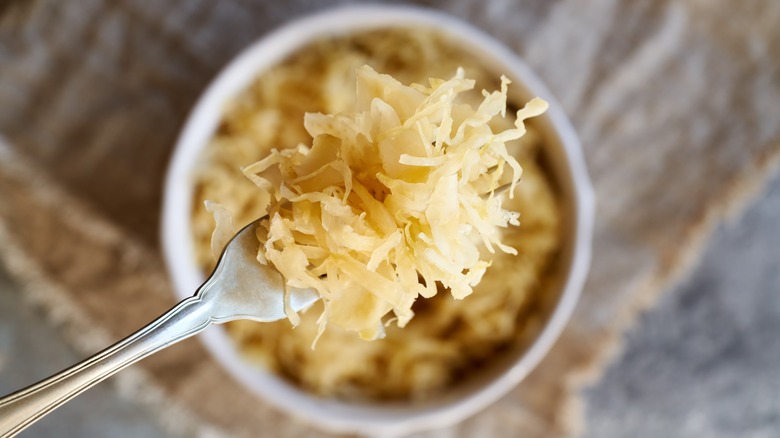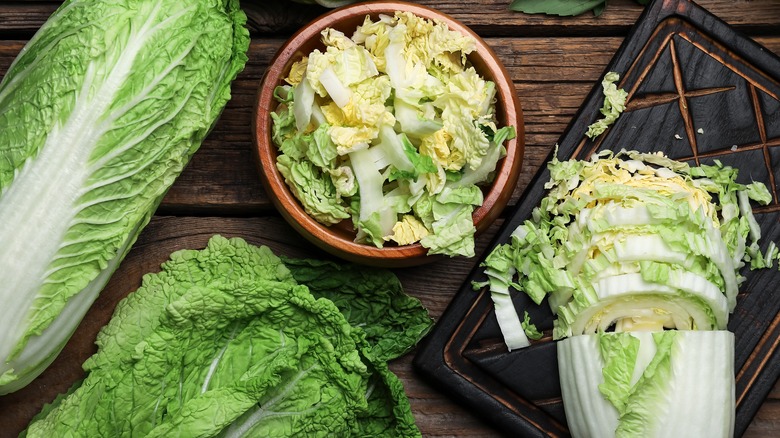The History Of Sauerkraut May Have Begun With The Great Wall Of China
If you've ever traveled through Germany — or even slid into a booth at a German beer hall — then you're most likely familiar with sauerkraut, the fermented cabbage that's so commonly heaped atop brats and burgers and even mixed into salads, mashed potatoes, and egg salad (via Cultures for Health).
Made from fermented shredded or chopped cabbage with plenty of salt and occasionally other complementary vegetables such as carrots and onions, sauerkraut is a crisp, tangy, probiotic-rich food that has come to be indelibly associated with Germany. The name of the dish is, of course, German, meaning "sour cabbage," and it has been a consistent part of the country's diet since at least the 1600s, according to German Foods. Germans are even nicknamed "Krauts" as a nod to the quantities of the vegetable they consume — so it might come as a surprise to know that sauerkraut is not a German invention at all.
Sauerkraut was most likely invented in China
Chinese cuisine is full of examples of fermented foods, from soy sauce to rice wine to pickled vegetables such as mustard greens and cucumbers. So it might not be all that shocking to find out that the most German-seeming of foods — the pickled cabbage known as sauerkraut — was actually first fermented by the Chinese, more than 2,000 years ago.
According to The New York Times, the puckery condiment closely associated with European cuisine is actually a legacy of the workers on the Great Wall of China, whose construction began in the third century B.C. (via UNESCO). Those constructing the vast project lived on meals of rice and cabbage and in the winter when the cabbage was already well past harvest, rice wine was mixed into it to preserve it, per The New York Times. Tossed together, the cabbage and rice wine mixture fermented, and an ancient cousin of sauerkraut was born.
In Germany, France, the Netherlands, and other European countries where kraut is popular, locals adapted the dish to a more familiar fermenting agent — salt. And that briny version is still going strong today.

